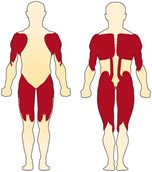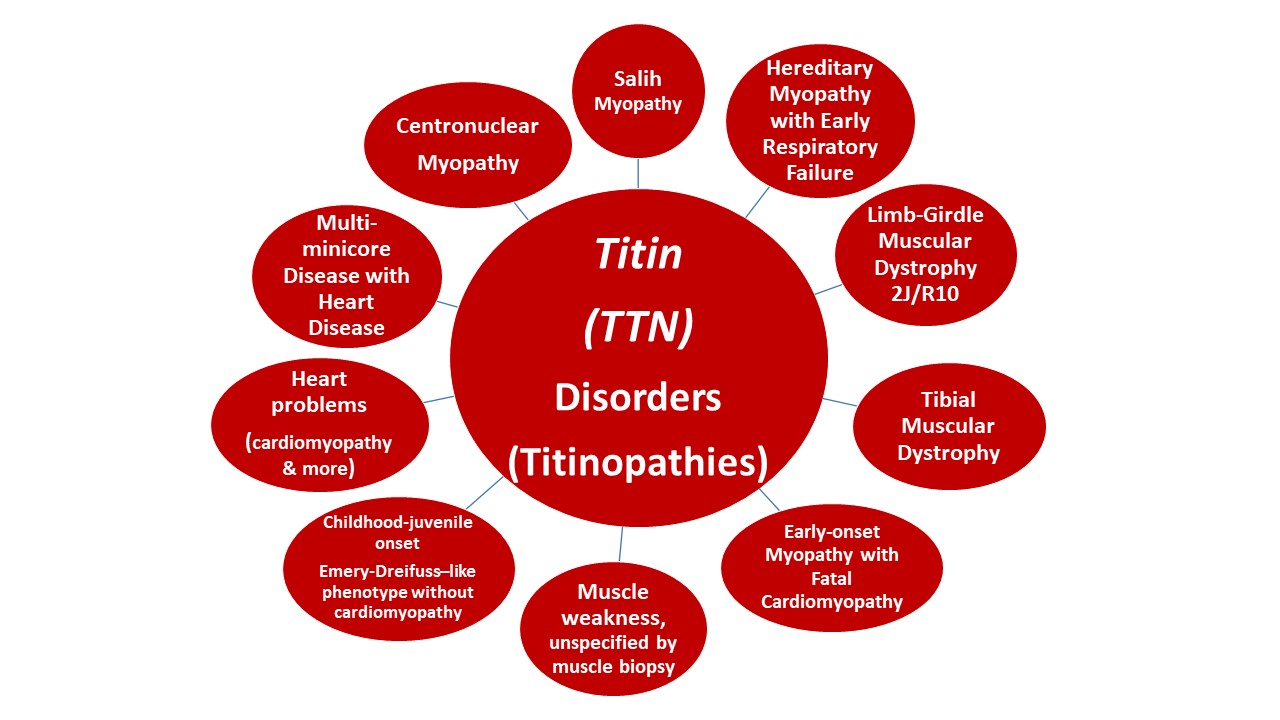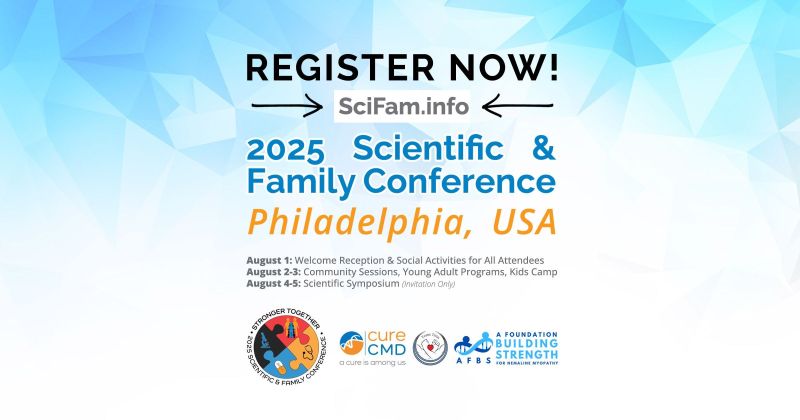Register now for our conference: www.SciFam.Info
Welcome to Team Titin
You or someone you love may have been told they have (or are suspected to have) a health condition from changes in the TTN (titin) gene. You are not alone and we welcome you to our community. Changes in a gene are called mutations or variants. These changes may cause muscle weakness as well as heart problems. You will need to discuss with your medical team to see if and how your TTN variant affects your health.
Team Titin, Inc. is a nonprofit corporation with the mission to serve those living with, caring for, or researching TTN (titin)-related muscle and heart disorders. To achieve this mission, we focus on four key pillars: Connection, Advocacy, Care, and Research. You can learn more here.
What is Titin?
- Titin is a very large protein. It’s huge! In fact, titin is the largest protein in the human body.
- The titin protein is located in each of the individual striated muscle cells in our bodies. Muscles need titin in order to work and move .
- In muscle cells, titin is part of the sarcomere, which is responsible for muscles contracting and relaxing.
- Titin is especially responsible for the normal “elasticity” of muscle. After your muscle does the work of contracting, the titin protein helps the muscle to stretch back into the muscle’s resting position.
- Titin also serves as a structural protein to help support the architecture of the muscle cell.
- The gene that creates the titin protein is the TTN (titin gene)
How changes in the Titin (TTN) gene can impact health 
Some single variants in TTN often cause problems with the heart’s pumping ability (dilated cardiomyopathy) and can also cause abnormalities of the heart rhythm, such as atrial fibrillation. There are many different types of titin variants, and heart disorders are usually associated with a specific subset of variants that shorten the titin protein. These are called “truncating” variants. Other types of titin variants, such as missense variants (that change a single “letter” in the titin gene) are common and are less likely to be harmful. If a person is born with two truncating titin variants (autosomal recessive inheritance), they may develop muscle weakness and heart problems from an early age. More frequently, however, people carry only a single truncating variant (autosomal dominant inheritance). In rare cases, titinopathy may come from changes in two different genes (digenic inheritance, such as TTN + SKRP3). It is a good idea for everyone who carries a titin truncating variant to have a checkup from a heart doctor, even if they feel well.
 Titin abnormalities can cause a wide spectrum of muscle disorders called “Titinopathy”. These disorders may be also called a “myopathy” or a “dystrophy” including limb-girdle muscular dystrophy (LGMDR10) and tibial muscular dystrophy. Some forms of titin-related myopathies may include centronuclear myopathy, multi-minicore myopathy, hereditary myopathy with early respiratory failure, Salih myopathy, core myopathy with heart disease, Emery-Dreifuss-like phenotype without cardiomyopathy and likely more. Muscle weakness may start in childhood or come on later as an adult. Weakness can range from mild to severe.
Titin abnormalities can cause a wide spectrum of muscle disorders called “Titinopathy”. These disorders may be also called a “myopathy” or a “dystrophy” including limb-girdle muscular dystrophy (LGMDR10) and tibial muscular dystrophy. Some forms of titin-related myopathies may include centronuclear myopathy, multi-minicore myopathy, hereditary myopathy with early respiratory failure, Salih myopathy, core myopathy with heart disease, Emery-Dreifuss-like phenotype without cardiomyopathy and likely more. Muscle weakness may start in childhood or come on later as an adult. Weakness can range from mild to severe.

Created with input by Diane Fatkin, MD, Renee Johnson, PhD , MGC and Sarah Foye, (Titin Advocate) May 2024
Medical disclaimer: Information on this site is provided as an information resource only and is not to be used or relied on for any diagnostic or treatment purposes. Please connect with your personal treating medical team for professional diagnosis and treatment.
